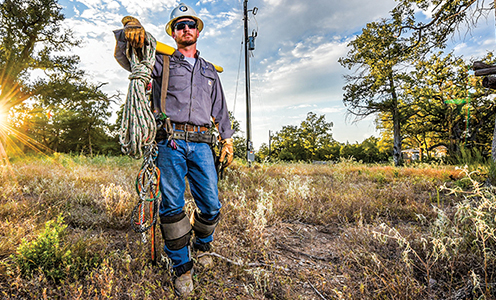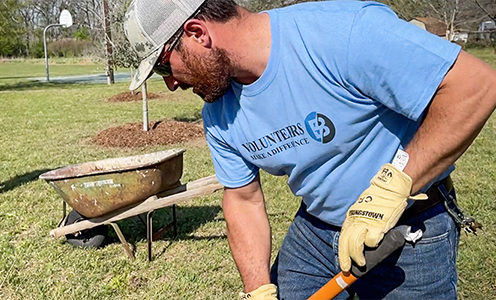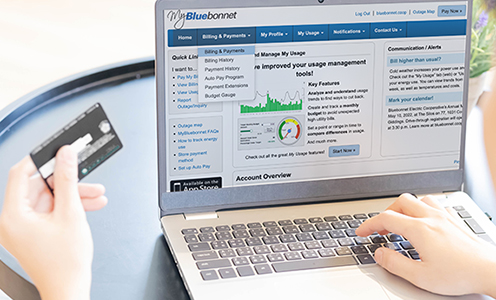Although average temperatures in the Bluebonnet Electric Cooperative region rarely drop below freezing, severe winter events have taught us to be prepared for anything.
Severe winter events have taught us to be prepared for anything
The most predictable thing about winter in Texas: It’s unpredictable. Although average temperatures in the Bluebonnet Electric Cooperative region rarely drop below freezing, severe winter events have taught us to be prepared for anything. Take these steps to stay safe and prepare your family and home for an unexpected winter-weather emergency.
1. Create a communication plan
• Your family may not be together
when severe weather hits, so create a plan that includes everyone’s role during an emergency.
• Discuss how you will stay in touch with one another.
• Do not rely on cellphones alone,
as service could be lost.
• Create “know your number” contact cards for everyone’s wallet or bag and consider having an out-of-area emergency contact who won’t be affected by the weather.
• Make a plan to regroup at a designated place.
• Decide who is responsible for household pets’ safety.
2. Download apps and save website URLs
• Federal Emergency Management Agency, fema.gov, and American Red Cross, redcross.org, provide emergency notifications and information
about shelters, first aid and recovery assistance.
• The National Weather Service at
weather.gov (type in your area), local
weather apps, the Weather Channel at weather.com, AccuWeather at accuweather.com and WeatherBug at weatherbug.com provide local and regional forecasts and alerts.
• The Texas Department of Emergency Management at tdem.texas.gov has
safety and weather information.
• Drive Texas, drivetexas.org, has
road-closure information.
3. Stock up on supplies
• Store at least a three-day supply
of non-perishable or canned food items and water, one gallon per person
for each day.
• Make a winter-weather emergency kit that includes blankets, extra warm clothes, sleeping bags, a first-aid kit, portable lights, a cell phone charger and walkie-talkies with extra batteries.
• Keep your gas tank full, and stock your vehicle with items such as a battery-powered or hand-crank radio, a towrope and an ice scraper.
4. Prepare your home
• Check heating systems; insulate and seal doors, windows, cracks or holes; repair any roof damage; and clear gutters.
• Secure lightweight outdoor items that could blow away.
• Cut tree branches near or hanging over your roof.
• Ahead of severe weather, insulate exposed pipes, drain outdoor water systems and keep water moving in indoor pipes by dripping all faucets.
• Store a fire extinguisher in a place you can easily reach.
For more tips to stay safe this winter and save money on your electric bill, go here.





